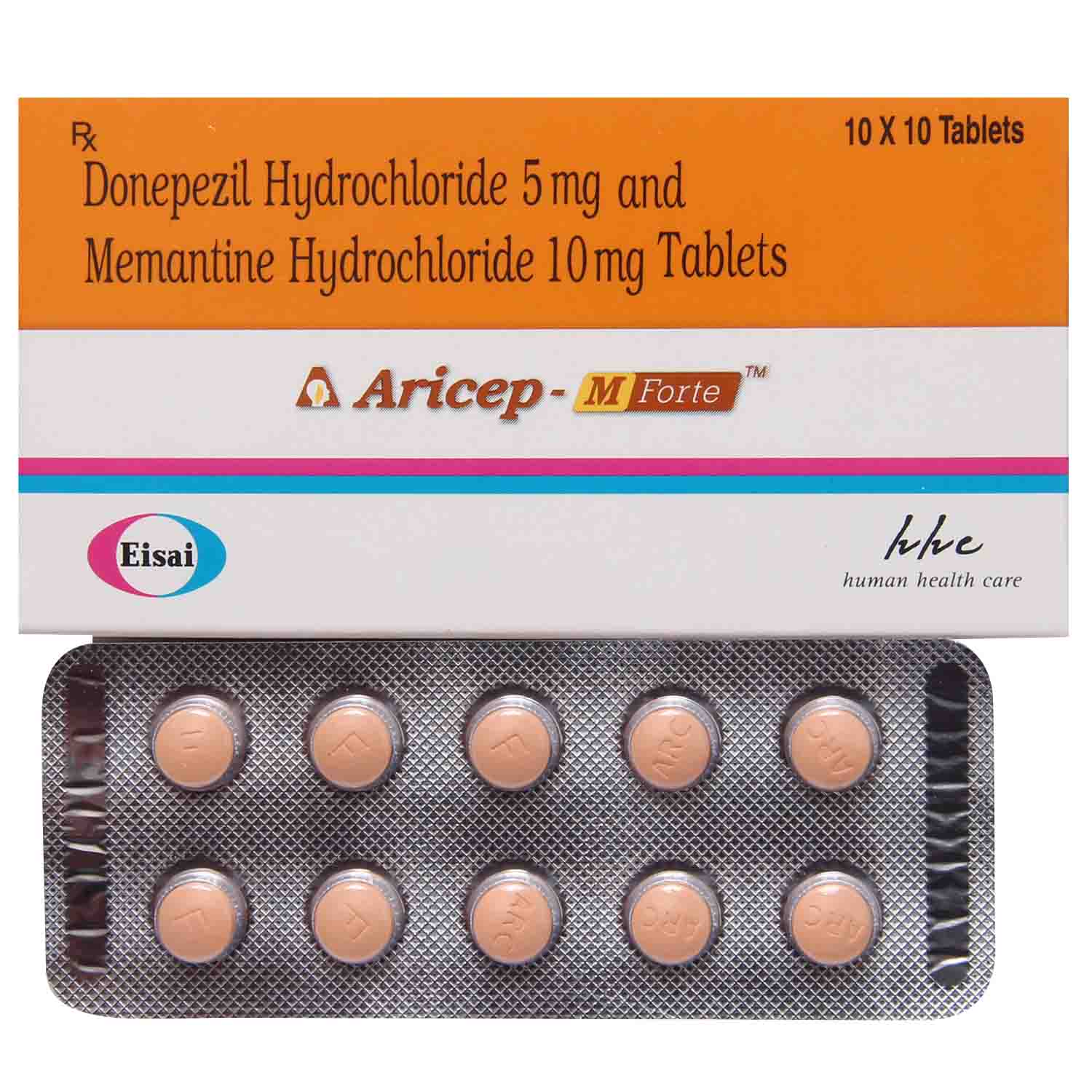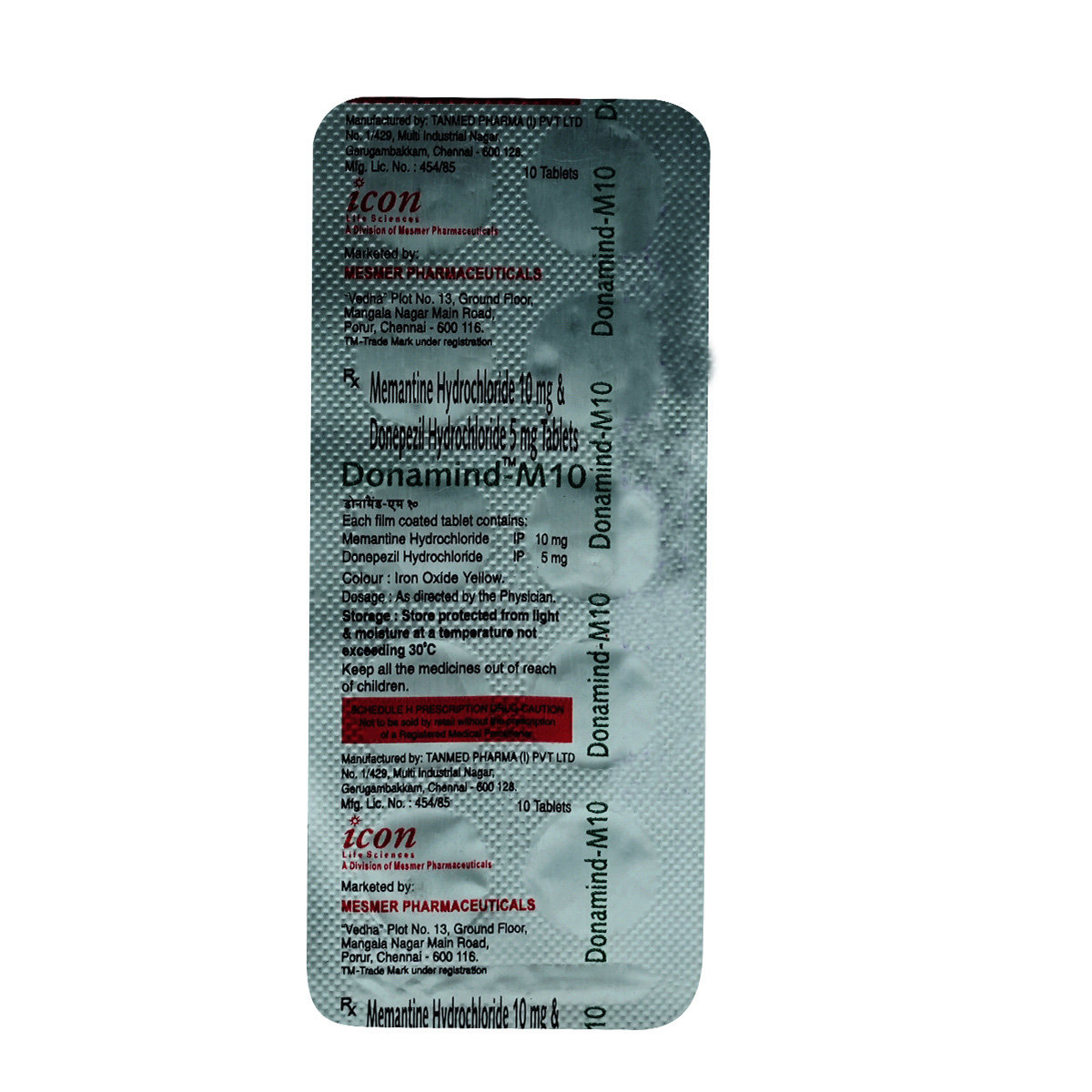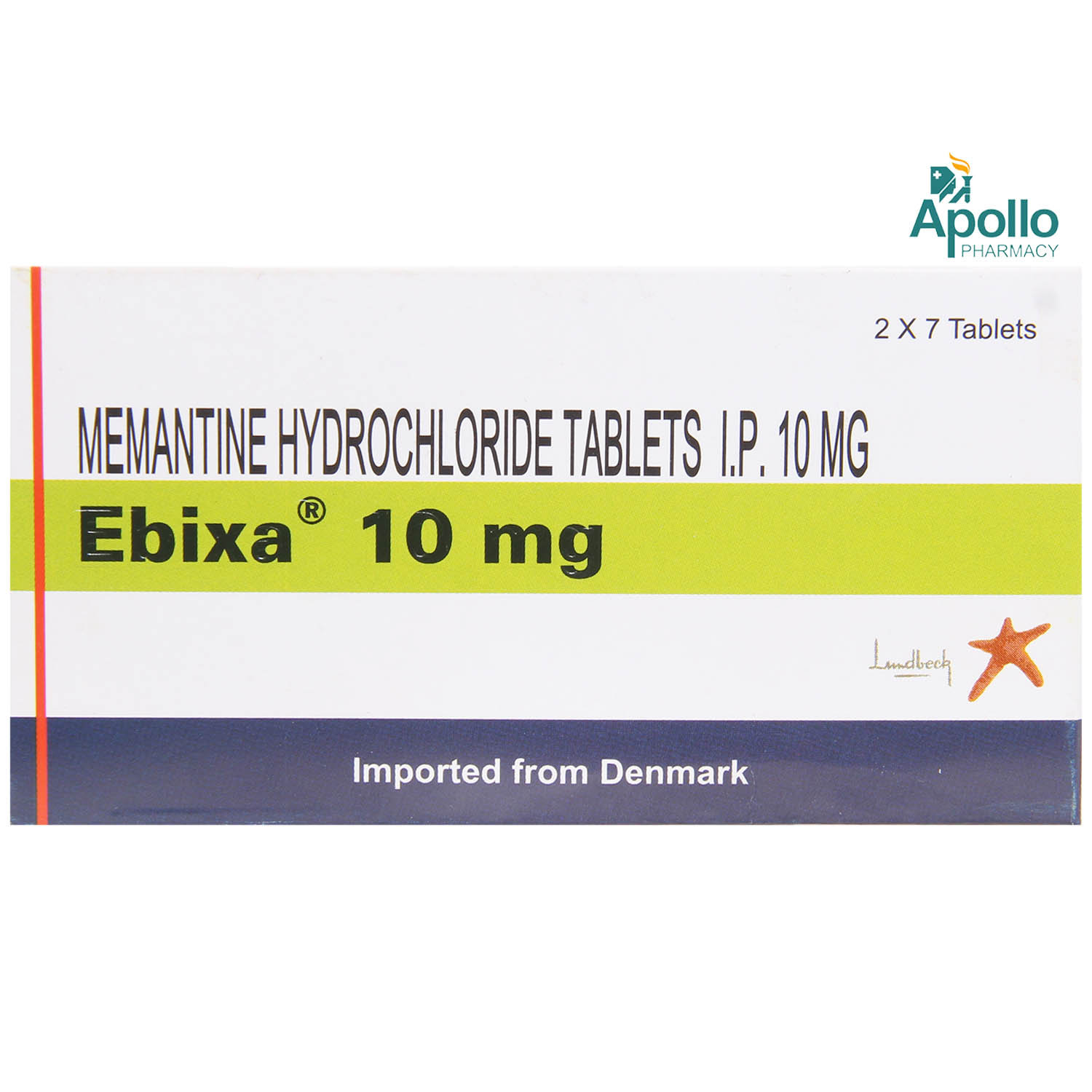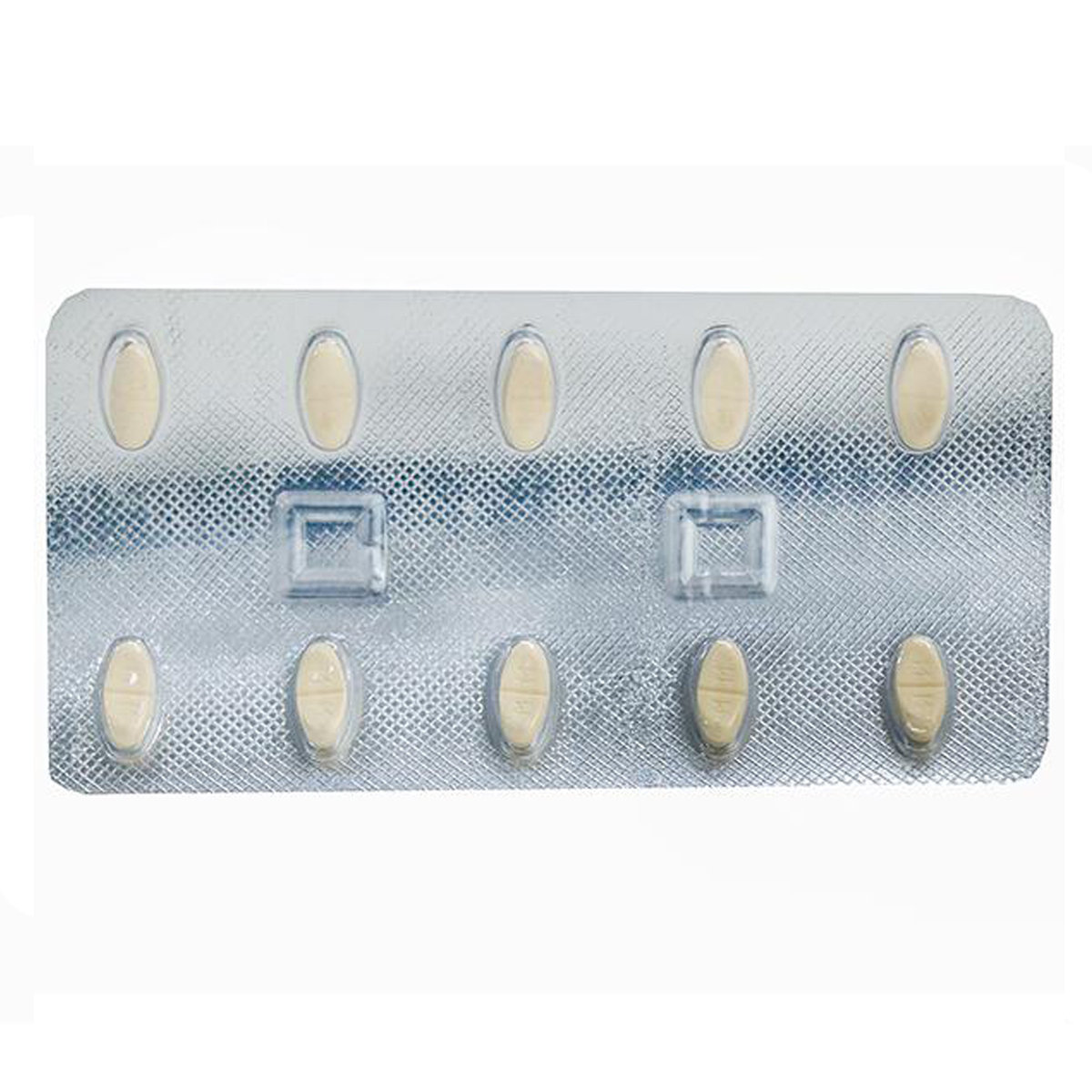Memantine
About Memantine
Memantine belongs to a group of medicines called anti-dementia agents used to treat moderate to severe Alzheimer's disease. Alzheimer's disease is a neurological disorder that causes dementia (memory loss), and slowly destroys the ability to think, learn, communicate, and handling daily activities.
Memantine contains 'Memantine' which is an NMDA receptor antagonist. It acts on the N-methyl-D-aspartate (NMDA) receptors involved in transmitting nerve signals that play an essential role in memory. Memantine decreases the brain's abnormal activity and may improve the ability to think and remember or might slow the loss of these abilities in people with Alzheimer's disease.
Take Memantine with or without food. You are advised to take Memantine for as long as your doctor has prescribed it for you depending on your medical condition. In some cases, you may experience certain common side-effects such as headache, sleepiness, dizziness, diarrhoea, constipation, balance disorders, and high blood pressure. You are advised to talk to your doctor if you experience any of these side-effects persistently.
Please do not stop taking Memantine without consulting your doctor. Consult your doctor before taking Memantine if you are pregnant or breastfeeding. Avoid driving or operating machinery as Memantine causes dizziness, sleepiness, and may affect reactivity. Avoid consuming alcohol along with Memantine as it could lead to increased dizziness. Memantine is not recommended for children below 18years as the safety and effectiveness have not been established. Keep your doctor informed about your health condition and medicines to rule out any side-effects.
Uses of Memantine
Medicinal Benefits
Memantine belongs to a group of anti-dementia agents called NMDA receptor antagonist. Memantine is used to treat moderate to severe dementia (memory loss) of Alzheimer's disease. Memantine acts on the N-methyl-D-aspartate (NMDA) receptors involved in transmitting nerve signals which play an important role in memory. Memantine works by decreasing the brain's abnormal activity and may improve the ability to think and remember or might slow the loss of these abilities in people with Alzheimer's disease.
Directions for Use
Storage
Side Effects of Memantine
- Headache
- Sleepiness
- Dizziness
- Confusion
- Diarrhea
- Constipation
- Balance disorders
- High blood pressure
- Shortness of breath
- Elevated liver function tests
Drug Warnings
Do not take Memantine if you are allergic to any of its contents. Inform your doctor if you have/had epilepsy (fits), heart attack, congestive heart failure, or uncontrolled high blood pressure. Talk to your doctor if you change your diet from normal to strict vegetarian or if you are having any kidney problems or urinary tract infections. Avoid taking amantadine (used to treat Parkinson's disease), ketamine (anesthetic), dextromethorphan (used to treat cough), and other NMDA-antagonists at the same time. Consult your doctor before taking Memantine if you are pregnant or breastfeeding. Avoid driving or operating machinery as Memantine causes dizziness, sleepiness, and may affect reactivity. Avoid consuming alcohol along with Memantine as it could lead to increased dizziness. Memantine is not recommended for children below 18years as the safety and effectiveness have not been established.
Drug Interactions
Drug-Drug Interactions: Memantine may have interaction with antiparkinson's (amantadine), anaesthetic (ketamine), anti-tussive (dextromethorphan), skeletal muscle relaxant (dantrolene, baclofen), antacid (cimetidine, ranitidine), anti-arrhythmic (procainamide, quinidine), anti-malarial (quinine), an alkaloid (nicotine), diuretic (hydrochlorothiazide), dopaminergic agonist (levodopa, bromocriptine), anti-psychotic (quetiapine), anticonvulsants (used to treat fits), barbiturates (used to induce sleep), neuroleptics (used to treat mental disorders), and oral anticoagulants.
Drug-Food Interactions: Avoid alcohol consumption while taking Memantine as it might cause increased dizziness and sleepiness. Avoid smoking as nicotine might interact with the working of Memantine.
Drug-Disease Interactions: Inform your doctor if you have high blood pressure, liver or kidney impairment.
Drug-Drug Interactions Checker List:
Safety Advice

Alcohol
unsafeAvoid consumption of alcohol while taking Memantine as it may cause increased dizziness.

Pregnancy
cautionMemantine belongs to pregnancy category B. Caution should be exercised; it is advisable to consult a doctor before using Memantine.

Breast Feeding
cautionIt is not recommended to breastfeed while taking Memantine. Consult your doctor before taking Memantine if you are breastfeeding.

Driving
unsafeMemantine causes dizziness, sleepiness and might change your reactivity. Do not drive or operate machinery.

Liver
cautionMemantine should be used with caution in patients with severe hepatic impairment. Please consult your doctor if you have a liver impairment or any concerns regarding this.

Kidney
cautionDose adjustment may be needed in patients with severe kidney impairment. Please consult your doctor if you have kidney impairment or any concerns regarding this.

Children
unsafeMemantine is not recommended for children below 18years as the safety and effectiveness have not been established.
Habit Forming
Diet & Lifestyle Advise
- Maintain proper weight by following a healthy diet.
- Exercise regularly as it helps in less cognitive decline and brain volume loss.
- Avoid smoking and alcohol consumption.
- Try to avoid stress by practicing meditation or yoga.
- Include fruits and vegetables in your diet as they contain anti-oxidants.
- Eat nutritious food as it helps in cognitive stimulation.
- Limit foods with high cholesterol and saturated fats.
- Cut down on sugar, salt, and processed foods.
- Drink plenty of water.
- Follow a healthy lifestyle as it helps in improving overall health and possibly protects the brain.
Special Advise
- Regularly monitor blood pressure levels while taking Memantine as it may cause high blood pressure.
Patients Concern
Disease/Condition Glossary
Alzheimer's disease: Alzheimer's disease is a neurological disorder that causes dementia (memory loss), and slowly destroys the ability to think, learn, communicate, and eventually, the ability to handle daily activities. It is the most common cause of dementia (memory loss) in adults. Dementia is the loss of cognitive functioning, such as remembering, thinking, and reasoning. The causes of this disease are abnormal functioning of brain cells which cause a disturbance in communication between them. The risk factors are age, family history, and genetics of a person. Alzheimer's disease symptoms include memory loss, trouble with familiar tasks, difficulties with problem-solving, trouble with writing or talking, disorientation, problems with reasoning or judgment, mood and personality changes. In most people, the symptoms of Alzheimer's appear in their mid-60s.
FAQs
Memantine acts on the N-methyl-D-aspartate (NMDA) receptors involved in the transmission of nerve signals which play an important role in learning and memory. Memantine decreases the brain's abnormal activity and may improve the ability to think and remember or might slow the loss of these abilities in people with Alzheimer's disease.
Memantine is used to treat dementia associated with Alzheimer's disease. Dementia (memory loss) is the loss of cognitive functioning, such as remembering, thinking, and reasoning.
Memantine does not cure Alzheimer's disease. Memantine improves the ability to think and remember or slow the loss of these abilities in people with Alzheimer's disease. Research is still in progress for the cure of Alzheimer's disease.
Do not discontinue Memantine without consulting your doctor. To treat your condition effectually continue taking Memantine for as long as prescribed. Do not be reluctant to speak with your doctor if you feel any difficulty while taking Memantine.
Diarrhoea could be a side-effect of Memantine. Drink plenty of fluids and eat fibre rich food if you experience diarrhoea. Consult your doctor if you experience excessive diarrhoea or if you find blood in stools.
Memantine may cause high blood pressure. Regular monitoring of blood pressure levels is advised while taking Memantine. Consult your doctor if you experience any fluctuations.








